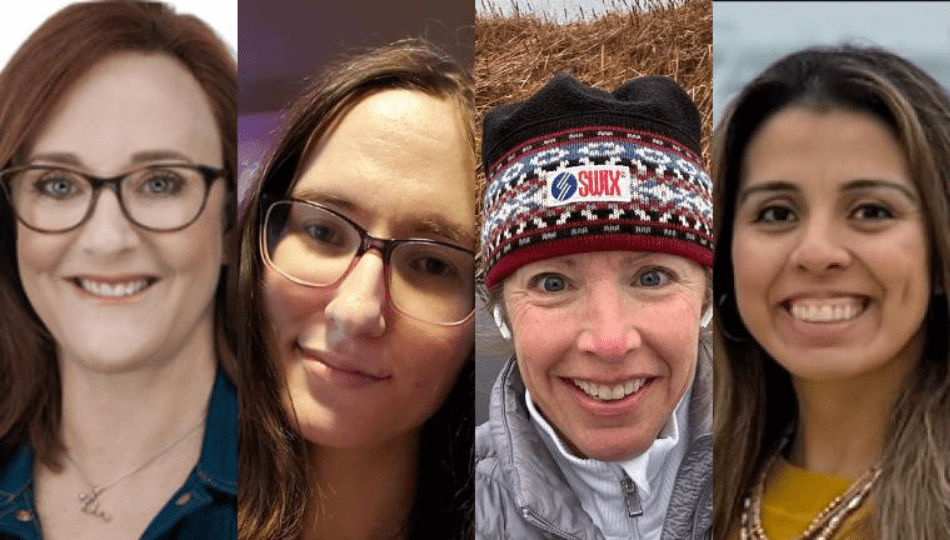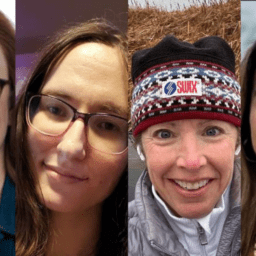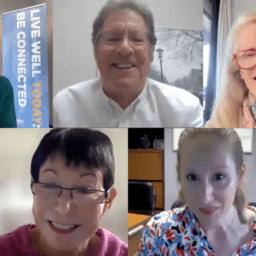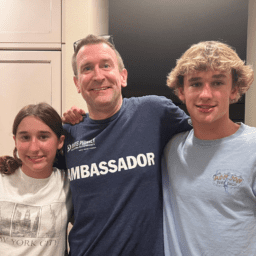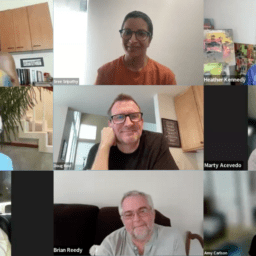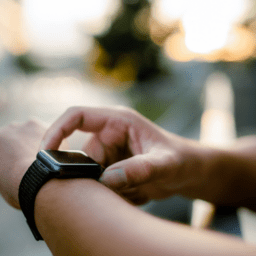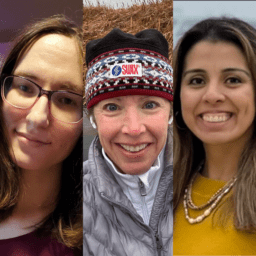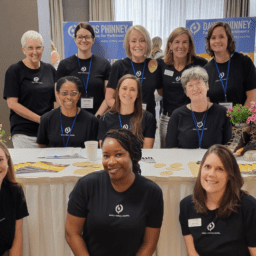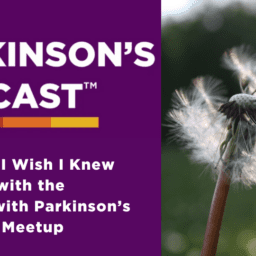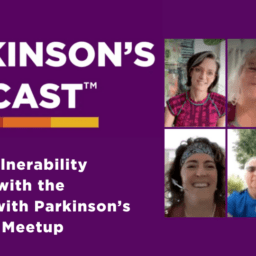In this video, Director of Education and Content Devon Fulford talks with four members of the Davis Phinney Foundation’s women’s panel about how Parkinson’s continues to influence their relationships.
The panelists discuss the balance between sharing their experience and “complaining,” the challenges of new and evolving symptoms, and navigating isolation.
An audio version of this webinar is available.
When living with Parkinson’s, it can be difficult to know what will happen minute-to-minute. Because of this, when you face a symptom you find particularly challenging, it is sometimes easy to feel stuck and fear things will never get better. The psychosocial pressures on women with Parkinson’s can make it more difficult to envision a path forward.
Moreover, the fact that each person’s most troublesome symptom may be different adds another layer to the difficulty: There are few textbook answers. This is especially problematic for women, who are underrepresented in Parkinson’s research and whose circumstances may be less understood by clinicians.
INSIGHTS FROM THE PANELISTS
Karen observed that for her, nausea often feels insurmountable. Jasmine offered that pain associated with Parkinson’s felt that way to her. But the panelists also noted reasons for hope.
Jasmine noted that through visits with a pain specialist and some botox injections—which she hadn’t known about before a care provider mentioned them—she has found some relief. Her point was that there may be change and new developments right around the corner, even when you don’t expect them.
Other ideas the panelists had for navigating particularly difficult symptoms of Parkinson’s included the following:
- Talk with all members of your care team about your most troublesome symptoms, and ask if there are alternative approaches to managing them.
- Connect with online communities for real-time support from other people with Parkinson’s, even in the middle of the night if your symptoms keep you awake.
- Reprioritize by being willing to let go of some of the balls you’re juggling when facing a challenging experience.
- Be willing to take the time you need for self-care, even if it means leaving something undone.
COMMUNICATION AND COMMUNITY ARE KEY
Communication is a key part of each of these tips from the panelists. All types of relationships can benefit from improved communication—from those with your care team to those with your friends and family, so consider being frank with the people in your life about what you are experiencing. You might be surprised at the responses.
Like Sandra, you might inspire your own child to engage in better self-care. Or, like Teri, you might become more comfortable letting go of some things you used to do. Perhaps, like Karen, you might find new insights into your family relationships or a deeper spiritual connection. And if you keep at it persistently, you might find—like Jasmine—that there is a treatment option that can help.
This is all easier said than done—especially for women experiencing Parkinson’s, who tend to have greater difficulties than men in even receiving an accurate diagnosis when living with Parkinson’s—but, as the members of this panel exemplify, a strong Parkinson’s community helps you live well today and navigate whatever challenges come your way.
ADDITIONAL RESOURCES
Our Archive of Women and Parkinson’s Blog Content
Advocating for Yourself as a Woman and a Person with Parkinson’s
Meet the Speakers
 Karen Frank, MS, CRNA
Karen Frank, MS, CRNA
Karen retired from her beloved career as a certified registered nurse anesthetist after she was diagnosed with YOPD. Since retirement, Karen focuses on Parkinson’s advocacy–especially as it relates to young onset Parkinson’s and mental health. Karen runs a national support group for YOPD and has served as a Davis Phinney Foundation Ambassador since 2019. She is a public speaker and is actively involved in improving medical care for those living with Parkinson’s. Karen is currently working to establish a Pedaling for Parkinson’s class in her home community of Saint Louis.
 Jasmine Sturr
Jasmine Sturr
Jasmine Sturr is a 29-year-old scientist who has lived with juvenile onset Parkinson’s for the past 15 years. Initially, motor symptoms were the most troublesome, but DBS surgery in 2015 has greatly improved mobility. Secondary gastrointestinal dysmotility has been another significant challenge to manage, for which a feeding tube that bypasses the stomach–as well as a new medication called Motegrity, the only prokinetic safe for people with Parkinson’s–have been the management. Through the years, different advocacy and science projects within the sphere of patient innovation have become Jasmine’s career.
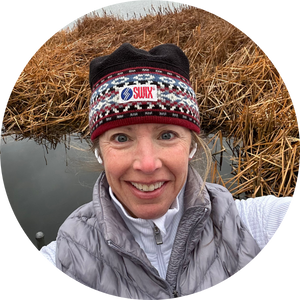 Teri Lamers
Teri Lamers
 Sandra Chu
Sandra Chu
Sandra Chu lives in Pennsylvania, just outside of the capital of Harrisburg. She is a 35-year-old stay at home mom who previously worked for 10 years in hospital and community settings as a nurse. Sandra was diagnosed in 2020 with YOPD. Besides keeping up with her 5-year-old daughter and furry (labradoodle) son, she has found a love for riding her stationary bike and has gotten back to running, which had become difficult to do when her Parkinson’s symptoms started. Sandra volunteers at a local food pantry and has recently become a DPF Ambassador.
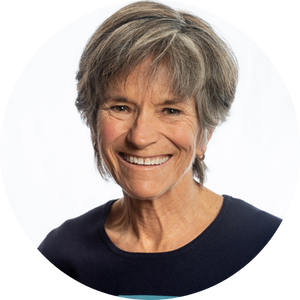 Patti Burnett
Patti Burnett
Patti is from upstate New York but moved to Colorado in 1978. She and her husband, Dan, have two married daughters and four grandchildren. Patti supervised the Copper Mountain ski patrol and trained and handled avalanche and search and rescue dogs before being diagnosed with Parkinson’s in 2013. She is an Ambassador with the Davis Phinney Foundation; Dan and Patti facilitate PD SELF classes. Patti has also authored two books: Hasty! Avalanche Search (the training and care of avalanche search dogs) and Chronic Hope (God’s redeeming presence in the midst of pain), which is currently being published.
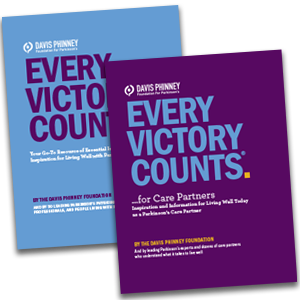 WANT MORE PRACTICAL ARTICLES LIKE THIS?
WANT MORE PRACTICAL ARTICLES LIKE THIS?
You can learn much more about living well with Parkinson’s today through our Every Victory Counts® suite of resources. Each manual is packed with up-to-date information about everything Parkinson’s. Click the link below to reserve your manual(s).
Thank you to our 2024 Gold Partner, AbbVie, and our Silver Partner, Mitsubishi Tanabe Pharma America, for their ongoing support of these must-have manuals. Additionally, we’d like to thank Barbara and Dale Ankenman, Abby and Ken Dawkins, Bonnie Gibbons, Irwin Narter, Lorraine and J Wilson, and Gail Gitin in loving memory of Gene Gitin for their generous donations that allow us to make these resources available and accessible to all.


